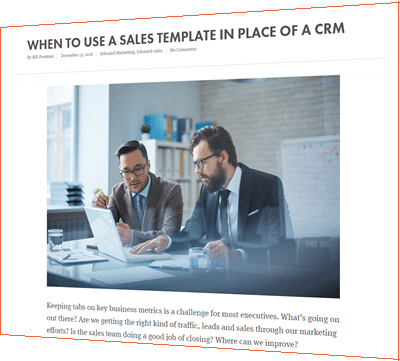Inbound marketing is really an excellent way to get your website found on the internet, convert your visitors to leads, and leads to customers. But I know from work on our own website, that creating all the content we need and managing social media programs, takes time. . . a lot of time. . . time that a small business owner may not have.After talking with several small business owners, we have created a do-it-yourself inbound marketing program for small local businesses. These steps are all easy to accomplish, and will start producing results for you very quickly. We are also available to coach small businesses by phone. We want to help you be successful with your local business!
The Do-It-Yourself Inbound Marketing Program for Small Local Businesses
We divide the whole inbound marketing process into three steps: Get Ready, Launch, and Bonus Points.
Get Ready!
There is some work to be done before you can launch your inbound marketing program. Take the time needed to make sure everything is ready and setup for success.
Review your website
Review everything on your website and make sure all information is accurate and up-to-date.
- Are your products and services presented clearly and compellingly?
- Do you have a contact form (not a link — a form) for your visitors to reach you? Where does the resulting email go?
- Do you have you company address and phone on every page? Is it obvious? We often suggest putting your phone number in your header, so it’s highly visible.
Take some photos
Take photos of your staff, your services, and your products. Take a photo of your building from the outside (a street view). Take photos that you could use to create a “tour” of your facility. Have fun with this! Involve your employees or staff in taking some photos.
Print some of your photos and put them on the walls in your office, or on the counter in your retail space.
Claim your local listings
Google Places, Bing Local and Yelp are popular local search sites, and you need to make sure your business is listed there, and listed properly. There are also about 8 other sites that will help your local search rankings.
Action step: Go to GetListed.org and complete your profile on the listed sites. Make sure your listing is the same across every site. Use the same business name, the same address, the same phone number and the same business description. It’s important that all your local search listings are the same in the eyes of the search engines.
Decorate your listings with the photos you took (see, there really WAS a reason for that step!)
Check your social media accounts
Your social media accounts should use the same logo and basic business information as your business listings. You have a little freer hand here to be creative, and each social media platform is unique in how they allow your business information to be added.
What social media platforms should you use? Our advice is to be where your target customers are. For most small businesses, that’s at least on Facebook. For others, Twitter and LinkedIn make sense. Do an anecdotal survey of your customers over the next week and see what social media platforms they are using, then make sure you’re there.
Of course, you can add your photos to your social media listings, too!
For Facebook, you should invest a little time in creating your custom Facebook business page.
Create an offer on your website
Create an offer on your website of a coupon, a special report visitors can download, a free gift when they come into your store, a two-for-one offer, or anything else that would be attractive to your target customers.
Important: Website visitors MUST fill out a form on a landing page with (at least) their email address in order to receive the item you’re offering. After submitting the form, be sure they can access the item right away.
Launch your inbound marketing program
Now add the same offer to your Facebook business page. Direct people to the form on your website where they can “sign up” to get the offer. Post on Facebook about your offer.
Send an email to everyone you know, current customers, past customers, chamber of commerce members. . . you get the idea. The email should reflect your personality and direct them to click the link to get the offer. When they give you their email address (again), that is permission for you to keep in touch with them via email.
Now you should start tracking results 🙂 How many new Facebook “Likes”, how many email responses, how many people take advantage of your offer, etc.
Whew! That’s a lot!
Yes, it is. And I’ve just skimmed the surface in this article. In future articles, I’ll dive deeper into each of these areas to provide a fuller explanation and some how-tos. You can get these future posts in your email if you wish, by subscribing to our blog at the top of the right column.
Bonus Points
What else can you do?
- The very, very best way to get more traffic to your website is by blogging regularly (at least twice a week). Setup a blog and get started! It’s pretty easy to blog twice a week, and over time, this will produce ongoing results in terms of increasing website traffic.
- Add social sharing buttons to your blog posts. Let you readers share your articles with their friends.
- Use video. You can add video to many of your local search listings, as well as to your website and Facebook. You can also link to your videos from all your social media platforms.
- Learn a little bit about keywords and search engine optimization. This will make it easier to get listed in the search engines for your most-search terms.
- Use Pinterest to showcase your business. Have fun and be creative with this!
- Develop a mobile marketing strategy. If I’m in my car and looking for your kind of business, how will I find you?
Now it’s your turn
Start at the beginning and take this a step at a time. Review your website, take some photos, claim your local listings and create an offer. Then make your offer as widely available as you can. Everything else can be done after your first success with inbound marketing for your small business.





